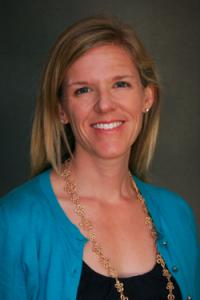
Needs of Our Children: Pediatric Care Before, During and After Disasters
Course Description:
The expectation during emergencies is that the care provided for adults is also appropriate for children. However, children have unique healthcare needs. In 2004, more than 25 percent (approximately 73 million) of the total U.S. population was under age 18. Of those 73 million, 20 million were under the age of 5. Although a significant proportion of children under age 18 may have a physiologic composition similar to that of adults, younger children have special requirements related to physical needs. Moreover, all children have unique mental health and psychosocial needs that should be considered during an emergency response effort. Given the large proportion of our population that requires pediatric-specific care, it is imperative that preparedness planning and disaster response specifically consider the special needs of children and the capacity needed to serve them.
The purpose of this presentation is to provide relevant information related to children's needs during emergency or disaster events from both a clinical care and a public health planning perspective. The speakers will provide a brief overview of the needs of the pediatric population and the delivery system that specifically serves children; discuss experiences from recent disasters where resources for children were limited; and discuss efforts and potential solutions on the state, regional, and national levels.
Target Audience
Academic Faculty/Staff, Federal Government Employees, State Government Employees, Local Government Employees, Non-Government Employees and Students
Learning Objectives
- To identify unique needs associated with children before, during and after an emergency or disaster
- To describe the unique needs/resources of the pediatric care delivery system
- To discuss the experience of pediatric care providers during Hurricane Katrina
- To discuss areas for improvement related to the care of and planning for children's needs before, during and after an emergency or disaster
Instructors:

Crayton Fargason, MD, MM, FAACP
Medical Director and Vice President of Clinical Affairs
Children's Health System
Professor, Dept. of Pediatrics
UAB School of Medicine
Birmingham, Alabama
Crayton Fargason holds an M.D. from the Johns Hopkins University School of Medicine and is currently assistant professor in the Department of Pediatrics, School of Medicine, and in the Department of Public Health Sciences, School of Public Health. He is also a Robert Wood Johnson Generalist Physician Faculty Scholar. Research interests include treatment and prevention of pediatric trauma and illness.

Carden Johnston, MD, FAACP
Chair, Disaster Preparedness Team
American Academy of Pediatrics
Emeritus Professor of Pediatrics
UAB School of Medicine
Emergency Medicine Pediatrician
Children's Hospital of Alabama
Birmingham, Alabama
Dr. Carden Johnston has distinguished himself with a record of outstanding service to children’s medicine in the state of Alabama. A 1961 graduate of the Medical College of Alabama, he served the Children’s Hospital of Alabama since 1975, and currently serves the UAB School of Medicine as Emeritus Professor of Pediatrics. A noted speaker, Dr. Johnston is widely known for his award winning NBC health and safety news segments called “KidCheck”. This health education program is now distributed to over fifty stations nationwide. As a physician volunteer he has delivered health and education services in the Dominican Republic, St.Lucia, and India. Dr. Johnston has served as president of both the Alabama and American Academy of Pediatrics, and as president of the Council of Medical Specialties Societies. Among his many honors, Dr. Johnston has received the Outstanding Achievement Award from the American Academy of Pediatrics and the Wallace Clyde Outstanding Service Award from Children’s Hospital.

Martha Wingate, DrPH
Assistant Professor
Department of Health Care Organization and Policy
UAB School of Public Health
Birmingham, Alabama
Dr. Martha S. Wingate (DrPH, MPH, UAB; BS, Birmingham-Southern College) is an Associate Professor in the Department of Health Care Organization and Policy. She teaches courses in maternal and child health policy and perinatal health issues. Dr. Wingate serves as the Director of the Maternal and Child Health Leadership Training Program. She has published in a number of peer-reviewed journals, including American Journal of Public Health, Social Science and Medicine and American Journal of Obstetrics and Gynecology and is co-author of a textbook on perinatal epidemiology. Much of her work focuses on preterm birth, fetal and infant mortality, racial and ethnic disparities in birth outcomes, and health policies related to pregnancy and infant health. Dr. Wingate is also involved with the surveillance of developmental disabilities including autism spectrum disorders and cerebral palsy. She has also been engaged in technical assistance to the Maternal and Child Health workforce at the local, state, and national levels, specifically in emergency preparedness and home visiting.
Available Credit
- 2.00 Participation/CETulane Professional and Continuing Education (PaCE) awards 2.00 hour(s) of credit for completing Needs of Our Children: Pediatric Care Before, During and After Disasters
Price
Required Hardware/software
System Settings
This course is designed to work most effectively if your computer and internet connection meet certain minimal requirements. This course can be accessed using a Windows 10 PC or a Mac with High Sierra1, Mojave, or Catalina. Pop-up blockers should be disabled when viewing the course. Internet Explorer 11 (for Windows 10), or the current version of Google Chrome, Mozilla Firefox, or Apple Safari (for Windows 10 and or Mac) is required. Many of our courses require Java and JavaScript enabled.
Links to External Websites
Links to websites outside this course will open in a new window or tab. Some browsers may minimize the course window. If this occurs, maximize the course window to return to the course.
Adobe Acrobat Reader (for desktops and laptops)
Adobe Acrobat Reader is required to access some documents in this course. If you need to download a free copy of Acrobat Reader, click here.
Internet Connection Speed
A minimum download speed of 1.5 Mbps is recommended for an optimal experience, which is commonly the speed associated with a basic DSL or a cellular/satellite connection. A faster connection, such as cable or fiber service, with further enhance your online experience. A Wi-Fi connection is generally acceptable, but it is dependent upon one of the two services mentioned above. You can check your internet connection speed at http://www.speedtest.net/.

 Facebook
Facebook X
X LinkedIn
LinkedIn Forward
Forward